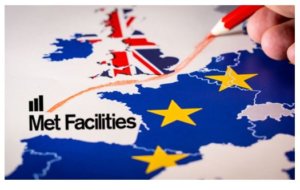FCA statement on reporting of derivatives under the UK EMIR regime in a no-deal scenario
The Financial Conduct Authority (FCA) has published a statement that explains what Trade Repositories (TRs) and UK counterparties should do to ensure they are compliant with the European Market Infrastructure Regulation (EMIR) reporting obligations in the event of a no-deal Brexit.
For the purpose of the statement, ‘UK counterparties’ includes UK firms and UK Central Counterparties (CCPs) who will be subject to the UK EMIR reporting regime. The FCA encourage UK counterparties to engage with their TRs to understand their choices and how this will affect them.
In February 2019, the FCA announced what they expect firms to do from Exit day for the EMIR reporting obligations:
- UK counterparties must report details of their derivative trades to an FCA registered, or recognised, TR.
- UK TRs must provide UK authorities access to data reported to them by UK counterparties. It is crucial for UK authorities to access this data from Exit day so that they have oversight of derivatives markets and can effectively monitor systemic risk.
In this statement, the FCA explains the following topics:
Changes for TRs
The FCA will become the UK authority responsible for the registration and ongoing supervision of TRs operating in the UK. TRs are required to have a UK legal entity registered by the FCA immediately following Brexit. The TR SI provides both a conversion regime and a temporary registration regime to ensure TRs can be registered and operational from Exit day.
The Conversion Regime allows TRs established in the UK before exit day to convert their existing ESMA registration into a registration with the FCA.
The Temporary registration regime (TRR) will offer temporary registration to TRs that apply for registration with the FCA before exit day, provided they are a UK legal entity and part of the same group as a TR with an existing ESMA registration. Applications submitted by TRs alongside a notification to enter the TRR will be assessed in accordance with the requirements of the TR Regulations.
Changes for UK counterparties
After Brexit, all UK firms that enter into a derivative contract (both over-the-counter (OTC) and exchange-traded derivatives) are in scope of the UK EMIR regime and required to report details of those transactions to an FCAregistered, or recognised, TR according to the UK EMIR regime.
UK branches of third-country firms (including branches of firms from EU27 countries after Brexit) are not in scope of the UK EMIR reporting regime and so do not have to report under the onshored UK regime.
Third-country (after Brexit, including EU27) branches of UK established firms are in scope of the UK EMIR reporting regime and must report details of their derivative transactions to an FCA-registered, or recognised, TR.
Non-UK Alternative Investment Funds (AIFs) are generally classified as third-country entities and so are not in scope of the UK EMIR reporting regime. However, where a non-UK AIF is managed by an Alternative Investment Fund Manager (AIFM) that is registered under the onshored UK Alternative Investment Fund Managers Directive (UK AIFMD), it will be reclassified as a Financial Counterparty for the purposes of the UK EMIR regime and in scope of the reporting requirements.
Reporting of new and outstanding trades by counterparties in scope
All new derivative trades entered into by UK counterparties on or after 11.00pm on 29th March 2019 are in scope of the UK EMIR reporting regime and are required to be reported to an FCA-registered, or recognised, TR. All outstanding derivative trades entered into by UK counterparties on or after 16th August 2012, need to be held in an FCA-registered, or recognised, TR on 29th March 2019.
Historic EMIR data
UK-based TRs seeking conversion under the TR SI have been instructed to maintain a copy of all historic EMIR data (ie derivative trades reported under EMIR that are no longer outstanding) to which the FCA and Bank of England currently have access. EU27 based TRs that establish a new TR in the UK and seek temporary registration under the TR SI have been requested to hold a copy of the historic EMIR data to which the FCA and Bank of England currently have access to in that UK TR group entity. This is to enable the FCA and Bank of England to continue to access these
data after Brexit based on their current mandates under the EMIR regime.
Inter-TR reconciliation
The FCA does not require UK TRs to undertake inter-TR reconciliation, or provide inter-TR reconciliation statistics to UK authorities, from Exit day but will work with all UK TRs on ways to fulfil this requirement in future.
There will be no requirement for UK TRs to ‘back report’ any inter-TR reconciliation statistics once an approach towards UK inter-TR reconciliation has been agreed (ie whatever is agreed will not apply retrospectively). This approach is subject to any further statements that the FCA may issue.
Data access for authorities
From Exit day, UK TRs will only be required to provide access to data reported by UK counterparties (based on individual mandates) to the FCA, the Bank of England and other UK authorities listed within the EMIR SI.
Suspension of the reporting requirements
The EMIR SI introduces a new power for the FCA to suspend the reporting obligation for a period of up to one year, with the agreement of the Treasury. The use of this suspension power is limited only to the event that there are no FCA-registered, or recognised, TRs available for UK counterparties to report to.
EMIR REFIT
The Treasury has indicated an intention to bring these changes either under the European Union (Withdrawal) Act 2018 (EUWA) or via the draft Financial Services (Implementation of Legislation) Bill (depending on when EMIR REFIT comes into force in the EU).
Further information:
To read more, please follow this link:
https://www.fca.org.uk/news/statements/fca-statement-reporting-derivatives-under-uk-emir-regime-no-deal-scenario
Contact us here
Other articles
Please Note: This publication is not intended to be a comprehensive review of all developments in the law and practice, or to cover all aspects of those referred to. Readers should take legal advice before applying the information contained in this publication to specific issues or transactions.

FCA statement on reporting of derivatives under the UK EMIR regime in a no-deal scenario






